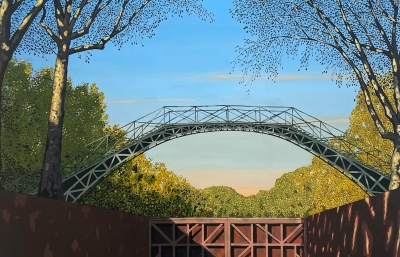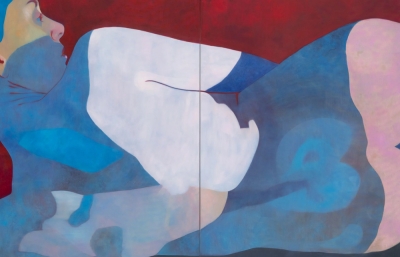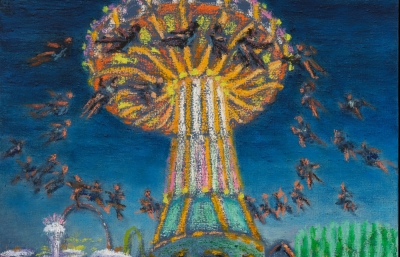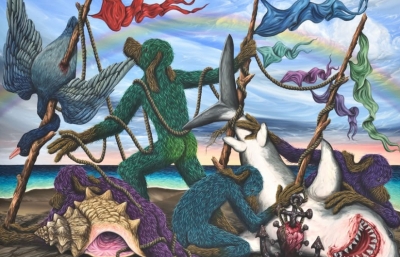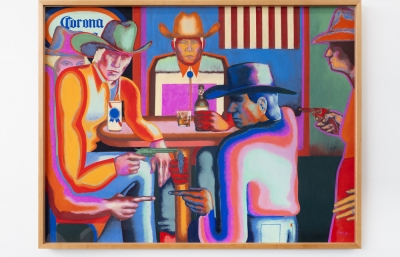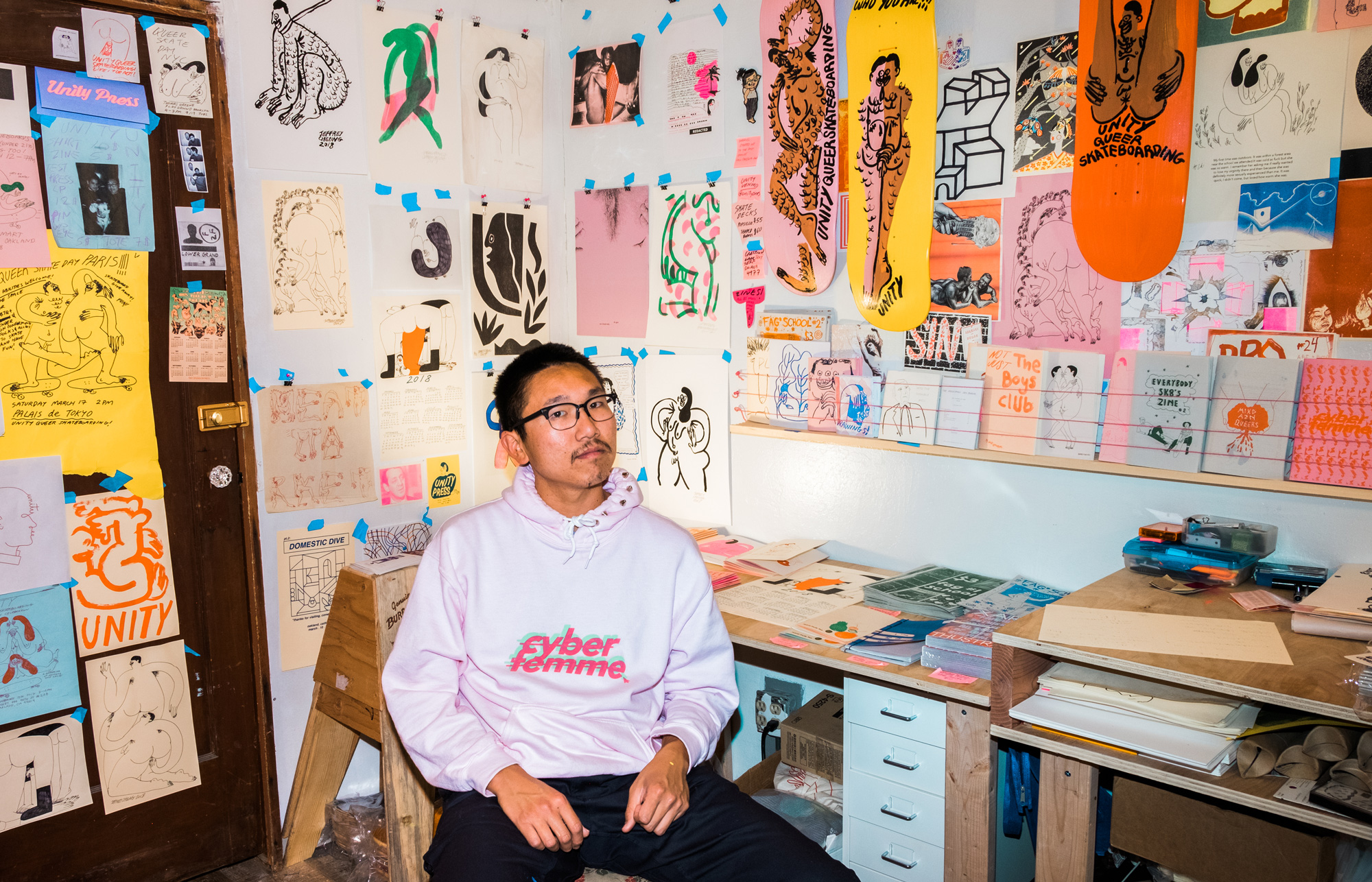
Jeffrey Cheung
Unity and Community, One Board at a Time
Interview by Eben Benson // Portrait by Alex Nicholson
One fascinating aspect of traversing the art world is finding the myriad ways that artists choose to make a statement. Amidst the pressure of making work for galleries, paying rent, challenging one’s self to improve, and maintaining a personal life that fulfills, many artists have to be themselves professionally, integrating their interests, goals, hobbies, and beliefs into their craft. This poses a unique problem because, when all that’s on the table, many become exploited for the very thing that makes them them, and are, therefore, encouraged to express themselves in an almost predetermined or formulaic way.
Jeffrey Cheung has explored routes for self-expression his whole life, slowly carving out a space in communities that have been historically exclusive. After beginning to discover a more universal language with art that gleams with vibrant color and characters that seem to burst with life, he began to find other folks who were denied an open space for expression, and expanded beyond himself, using his art to give a platform for others to feel comfortable and free. Instead of focusing solely on his promising art career, he started Unity, a printing press and skateboard company that aims to support queer people, trans people, and people of color (QTPOC), hosting a community in person and online that celebrates their contributions to art, music, skateboarding, and more. In bringing his community with him, as a queer Chinese-American, he has been able to maintain and strengthen his vibrant personal expression and open doors to skateboarding and beyond for people who have been unable to express their honest selves.
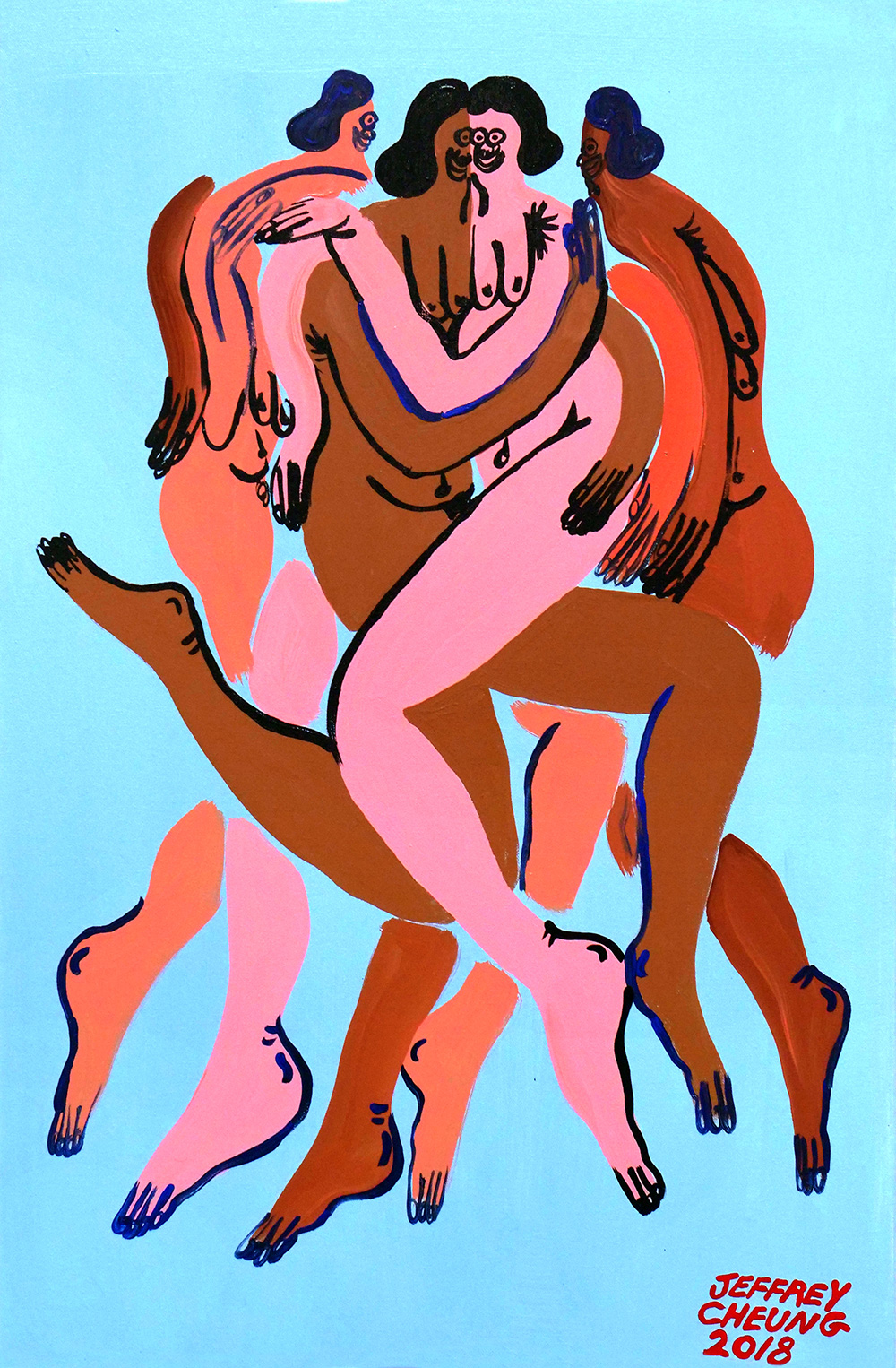
Eben Benson: You’re a painter, musician, and skateboarder, all simultaneously and successfully. How do you keep a balance? Does it feel like you are stretched thin, or do you feel that each one contributes to your life in a way that makes the others easier?
Jeffrey Cheung: They are all passions of mine that have given me an outlet in some way in different periods of my life. I have recently been much more active in skateboarding, but it was also a huge outlet for me in my teen years. It was basically all I did in high school, but I slowly grew apart from it as I got older, shifting towards art and music instead. I feel like they are all pretty related in terms of being creative outlets, and I have a similar outlook/mindset for all of them. In the past year, it seems like I am doing all of these things at once, which is exciting but can also be a little wearying. Although I do all these things at the same time, I think I tend to focus and jump from one thing to the other when I start to feel burnt out. It keeps things fresh for me that way.
What was your timeline for getting into visual art, skateboarding, and music? What was it like growing up and beginning to engage with these things, and were they symbiotic?
I think I got into visual art first, then skateboarding, and then music. They were actually all mostly separate things for me and didn't have too much crossover besides maybe music and skateboarding, since I found out about a lot of music through videos. They were all outlets for me as a teenager and allowed me to direct my feelings in some way, but I spent most of my high school years really focused on skating. I think skateboarding, in particular, helped me because it gave me a way to physically leave and find my own spaces, whether I was alone or with friends.
I feel fortunate to have gotten into art, music, and skateboarding at a young age, and to still be active in these things today. I've been really inspired again since starting Unity Skateboarding, and honestly didn’t think I would be skating again after not skating for about 10 years. I feel even more enthusiastic about it now than in my teen years. I finally feel like I can tie all of these aspects of my life together while being openly queer, and being able to support other folks in the queer community.
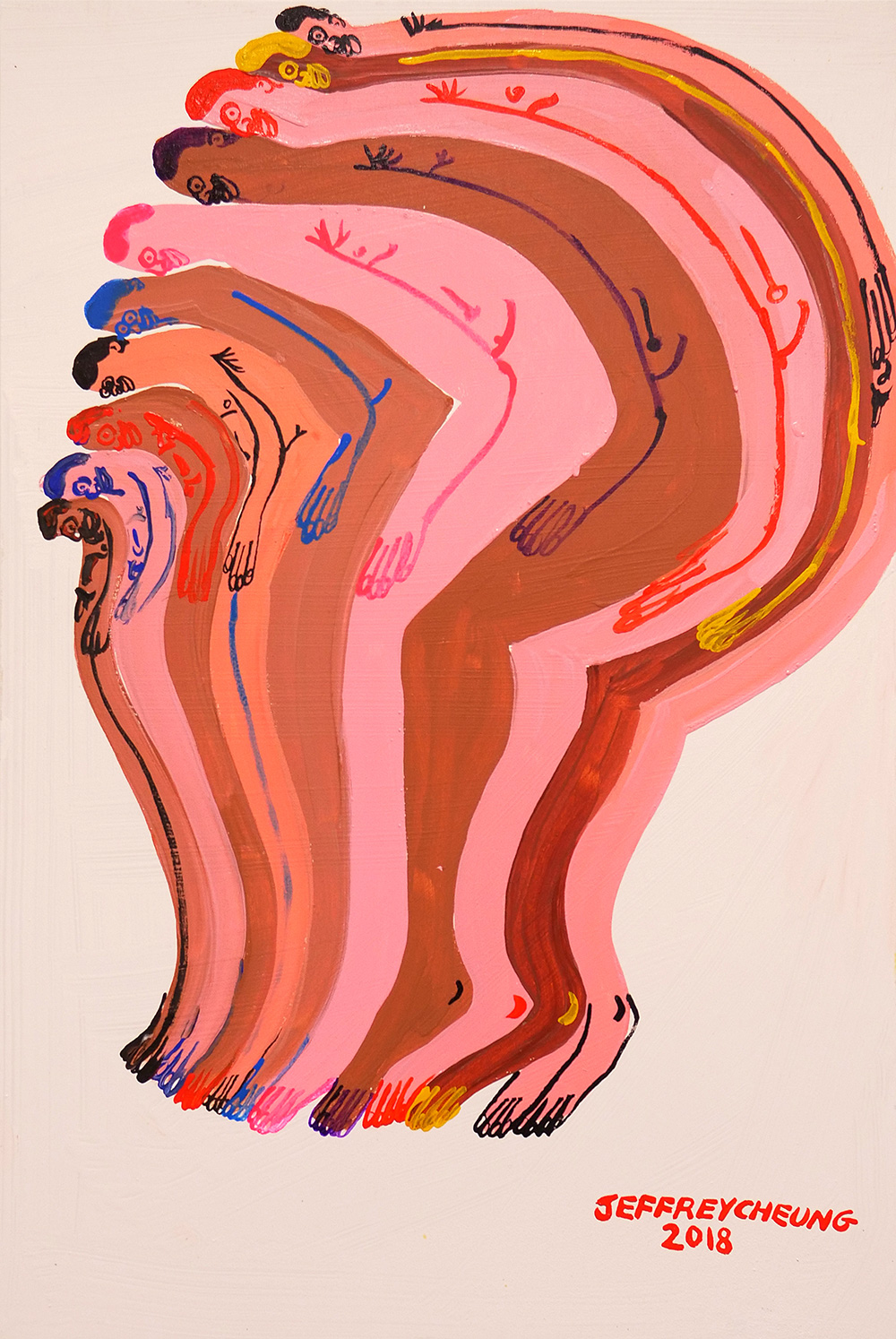
What inspires you to stay in Oakland, even as the city gentrifies and has lost so much of its creative community? What do you envision for the future of Oakland's communities of queer people, skateboarders, artists, and counterculture?
I grew up in the area and my close family is still here, so I will always have a connection to the Bay Area. Despite all the negative changes and displacement that has been going on, there is still a lot of positive resistance and vibrancy in creative and queer communities. I am also very much inspired by all of the queer skaters I have met this year and the new community that we are helping to build together, which gives me hope for the future. We try to actively support other folks, especially queer and POC, with our projects, providing space and resources whenever we can, and we see many others doing the same in reaction to everything that is negative going on. I can only hope that as long as we continue to support each other, we will never be completely pushed out.
I find it fascinating that you seem somewhat shy and remain so calm in conversation, while your crafts and projects are so ambitious and almost loud. What makes you feel more comfortable about expressing yourself through art rather than verbally?
I often do feel shy, and have never been a very good speaker or liked talking about my artwork. I think I started making queer visual art as a way for me to deal with my own sexuality and identity because I could do it in a private way, but also make it public. I usually feel much more comfortable making paintings or actions than talking about them.
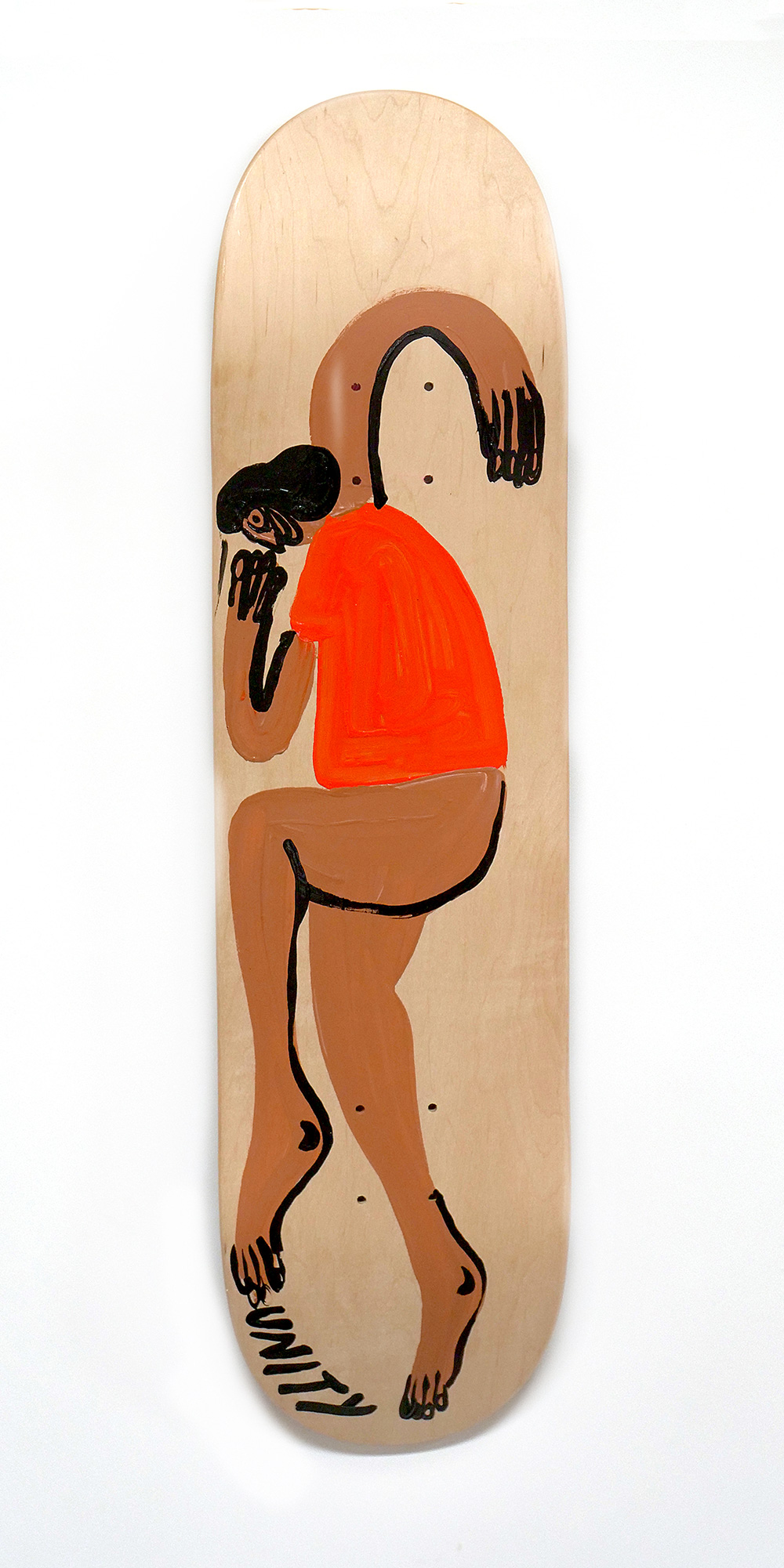
What options do you see for young QTPOC in changing the narrative and conversation around the larger communities that they are a part of? It seems that your approach has been to take the cultural "thing," and create a parallel space for folks who are often pushed away from the mainstream idea. Unity Skateboarding has led to a truly beautiful change within skateboarding where it seems many people feel more open to not only be a QTPOC skater, but also for folks who aren't, to see and increasingly celebrate that community. Did you ever consider moving into pre-existing structures, like skate companies or businesses, and change from within?
Honestly, I never thought I would be in the position that I am now, where I might be able to influence the skateboarding world or companies. I started Unity Skateboarding as a DIY and personal way of supporting myself and my queer friends because I loved skating but always felt like I had to hide being queer. Now it seems like more and more queer people are coming out skating and learning how to skate and be themselves. When queer, trans, and people of color simply exist visibly, are active in their communities, and take up public space, they can change the narrative both in and outside of skateboarding. A new movement is happening and it is amazing. Folks in the local skate community, including 510 Skateshop and DLX in SF, are showing their support, carrying our boards, which we really appreciate. Jim Thiebaud and Max Schaaf, who are very prominent people in the skate world, have also been super sweet and back Unity, which is pretty unreal to me. I feel that seeing this happen is really inspiring to me, knowing that we might actually be making changes in skateboarding together, at least within our immediate community.
One thing that I feel doesn't get enough attention regarding Unity is that you hand-paint all the boards that you make and sell. I've walked into your studio and, at times, seen almost 100 boards strewn about and ready to paint. Why do you hand-paint them all? Have you considered getting them printed?
Yeah, I have been hand painting all the boards until this day, and have painted about 1200 boards since we started last January 2017. It started with the idea of just painting a small batch of blanks for myself and a handful of other queer skaters who were my friends, but it just kept going. It’s really rewarding and fun to be able to personalize each one and make my friends and other queer skaters’ "pro" models knowing that I am able to empower them in some way. Although I enjoy the process, it has gotten a bit draining since I spend a lot of my time painting boards on top of my day job and other projects. I am planning on getting a series printed, hopefully later this year, but I will probably still paint them for friends and other queer skaters.
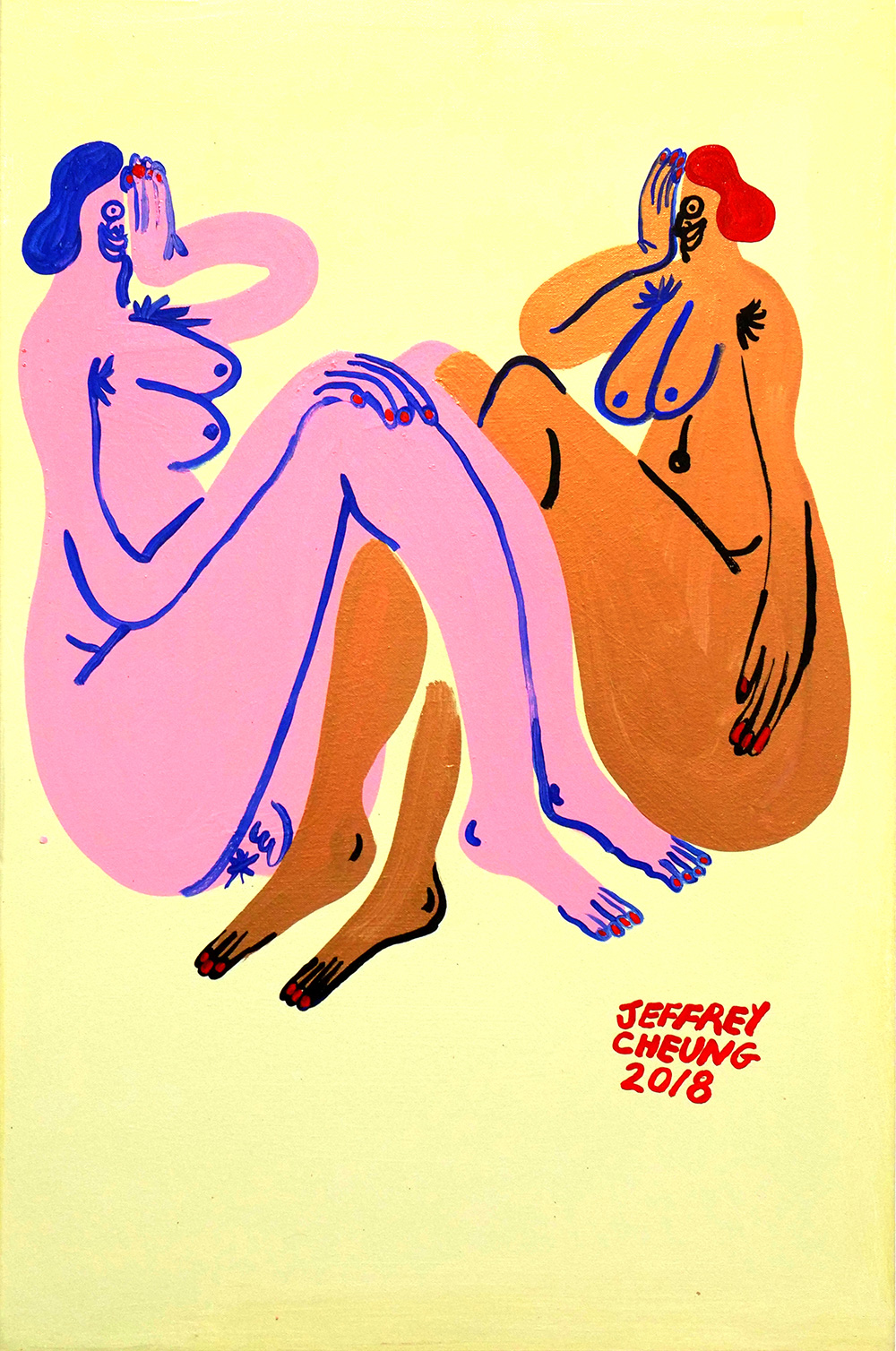
You also hand out skateboards to many femme and/or QTPOC skaters at your skate days. When did you start doing this and how are you able to maintain that?
We started the queer skate meetups last July as a way to connect with queer skaters in our area. They have been going so well that we decided to keep doing them monthly. We usually give out boards and shirts and whatever other skate stuff to folks that come. We have also done a couple skateboard giveaway days for queer teens and QTPOC which have been super amazing for us to be a part of. We really want to support as many queer skaters as we can by either giving them skateboards or a space to skate, especially QTPOC because I feel like there is still a lack of queer/trans black and brown folks in skateboarding. So far we have been able to support Unity mostly by also selling our boards, shirts, and zines on top of working during the day, but are looking into other ways to make this project more sustainable as we continue.
Although this can totally apply to the above questions, do you find that Unity and the skaters involved are tokenized for their identity? What is your relationship to that idea?
It is hard to tell. We have actually gotten a lot of support and mostly positive responses from people in and outside of the skate community, and I want to think that their support is genuine. Since starting Unity Skateboarding, a bunch of folks have reached out to us about collaborations or media coverage, and we do question their intentions. We try to be careful about the media outlets and people that we work with and cover us, but it is a tricky issue that we are always thinking about.
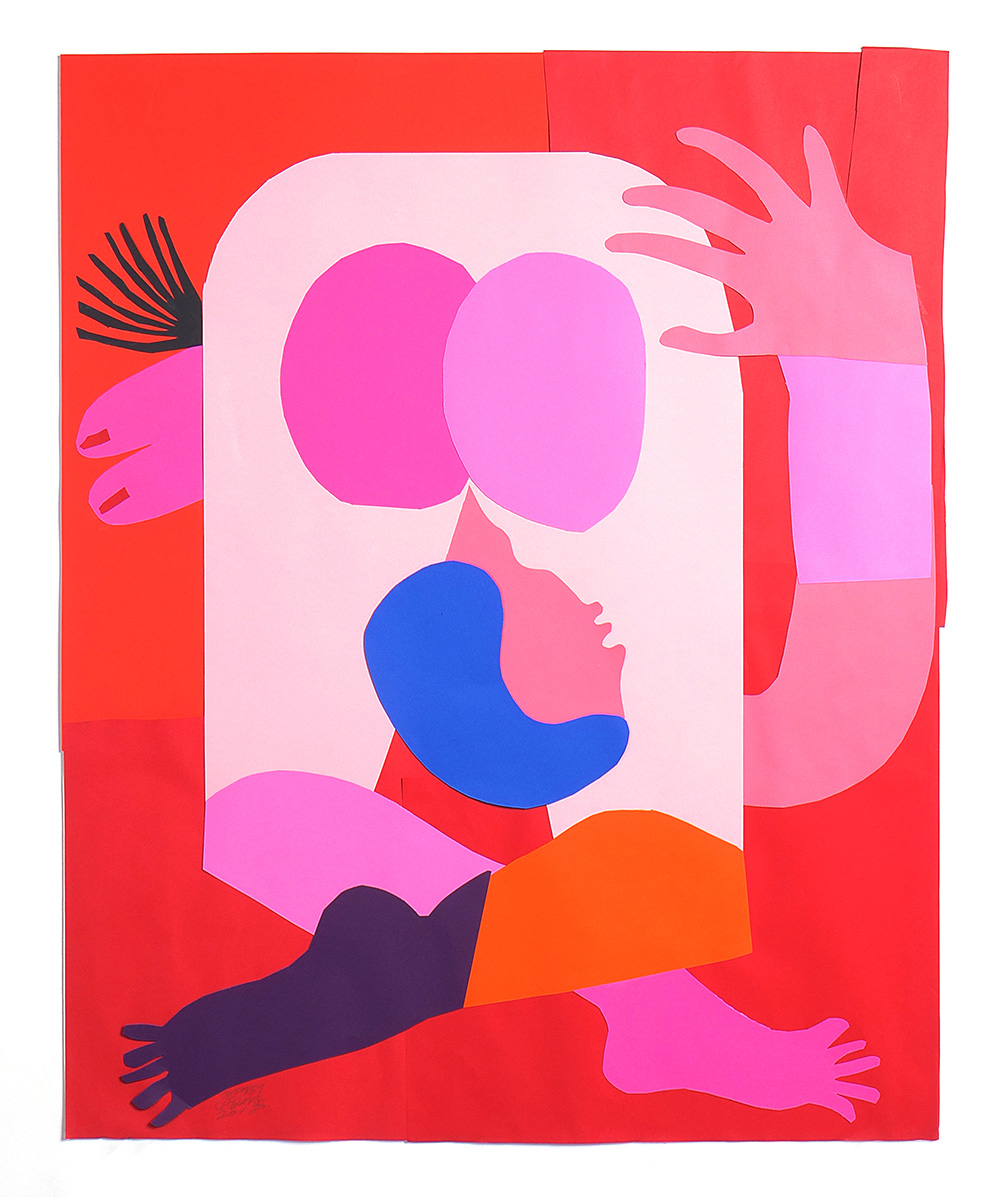
As an accomplished artist, do you keep painting separate from Unity? Does the work you make for a gallery contain different ideas?
I think it is mostly pretty similar. When we started Unity Skateboarding last year, my focus really shifted towards painting boards and hosting zine-printing days in our studio, so I have been less active in gallery work. I do feel as though I have always tried to convey the same imagery and ideas in both my zines and paintings, just as different mediums. With gallery stuff, I feel like I am able to make more queer visibility in representation in the art world through large-scale paintings, but it seems like a much different audience than with Unity, where I’m able to directly work with folks in my community. Since devoting more time to Unity, I think my own work has changed and progressed in a positive way. Previously, in my artwork, I depicted imagery that was based off more of my personal identity and sexuality, and had mostly male-presenting figures, which I realized was a little limiting. And, since starting Unity, I have been painting boards for queer people of all identities, orientations and colors, and I realized I wanted my artwork to reflect that. In both the gallery and my work with Unity, I want to celebrate all queer identities and sexualities to create more positive queer visibility and representation in the world.
What artists and art movements do you see happening now that get you excited?
I am out of the loop on a lot of what goes on in the art world, but I feel like spaces are starting to become more inclusive to marginalized people, which is always great to hear about. I am always excited when I hear about queer, POC and womxn in the spotlight, and I feel like it is happening a bit more these days. There are also a lot of things going on in my immediate community that I am excited about, friends and people taking action and doing similar things to support their own communities and spaces. Lower Grand Radio, who we also share a space with, is a DIY online radio that provides a platform for all kinds of people to share their voices and opinions. Take Care Tapes is an all womxn of color based music label that supports queer people of color by providing resources and free studio recording time. These are just a few examples that come to mind of people actively trying to making positive changes and creating space for others, which I think is very inspiring.
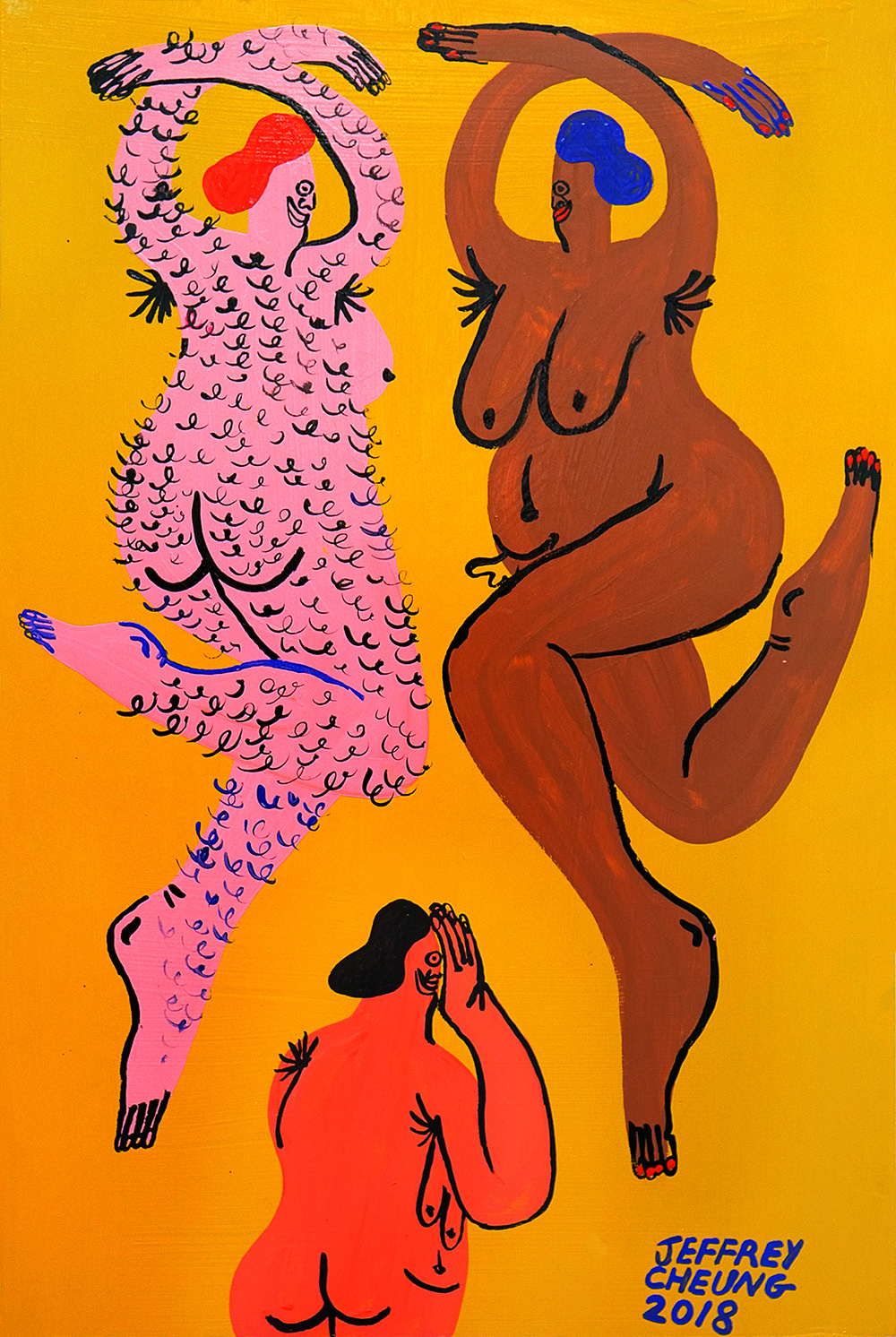
Since we have started doing monthly queer skate meetups in the Bay Area last year, we have gotten messages from queer skaters from all over the country and the world asking us to host similar meetups in their own cities, though we aren’t always able to be there. There are now several queer skate crews and groups that host their own meetups, which is so inspiring. So far, there are groups in Atlanta, New York, Los Angeles, and Santa Cruz, and it continues to grow. We always try to support them as much as we can by promoting their events or with skateboards, even if we are not in the area. Unity is also not the only queer skateboard company, Pave the Way Skateboards actually started around the same time as we did, and they are amazing. Catasstrophe Skateboards is also another queer skate project that is newer and I hope to hear about more soon. Skate Like a Girl, Skate Witches, Brujas and other womxn-focused skate crews are also inspiring. I really do feel like there is a new queer skate movement happening.
Do you think the goals of Unity can also be applied to the art world, even though it's a different world than skateboarding?
Yes, I definitely think so, and we are trying to achieve that through Unity Press by providing a creative space and a platform for queer and marginalized people. I think zines can be just as empowering as skateboarding and can create a sense of validation. Over the years, Unity Press has shifted towards a more queer focus and we have hosted free print days and workshops, which we hope to continue to do. We have a space where we welcome folks to come and create zines and use our resources on a donation basis. I think it is important to think about the types of people typically represented in art spaces and who has access to those types of resources. Just as in skateboarding and the rest of society, it is predominately white and hetero-normative, and we want to see more positive queer representation and visibility in the world and all aspects.
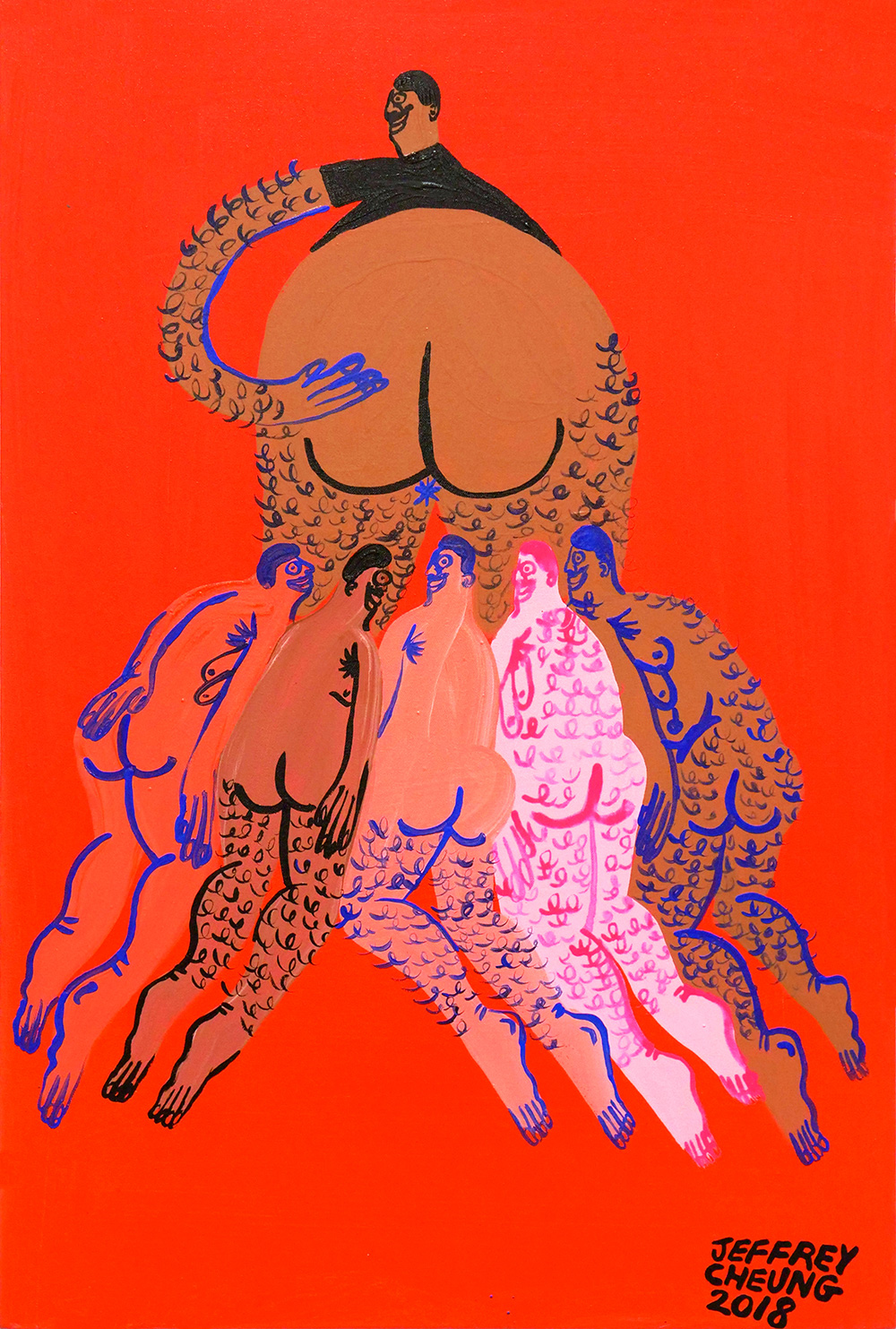
Your work used to feel a little more chaotic, like that mural you painted in the Mission District in San Francisco. When did you start making characters in this cleaner, kind of gestural way?
I think my style just eventually changed the more I drew and painted, which I think happens naturally for people. I feel like it is still similar, but I have been thinking about shapes and form and trying to be more simple. I still feel like it can be pretty chaotic and messy at times, though.
Do you have a favorite movie and music album? Do you have any go-to answers when someone asks you this predictable question?
Not really, but I think one of my favorite movies is Happy Together, which is a queer Hong Kong film from the ’90s by Wong Kar Wei. It’s really rare to see films about queer relationships with queer Asian main characters, so it definitely stuck in my mind. Also a big fan of Tony Leung! He's so dreamy!
Jeffrey, along with Unity Co-Founder Gabriel Ramirez, will be curating a group exhibit of work from queer skaters and artists at New Image Art Gallery in November. Jeffrey's own work will be on display in the gallery's back room during the show. Unity will also have a booth at the New York Art Book Fair in September.
Jeffreycheung.com
Unityzines.com

